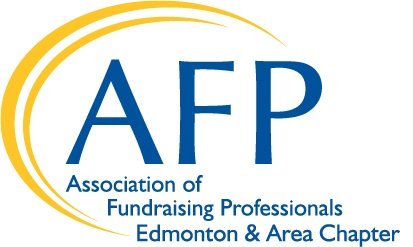Location: Virtual - Zoom
Date: March2-March 23rd, 2021
Cost: Members: $60.00, Non-Members $75.00
CFRE Continuing Education Credit Value: 4 Credits (Points)
Mark your calendar for all 4 dates in this series! Cost includes registration for all 4 parts of this series.
There are three important ratings that researchers and fundraisers use to segment and prioritize major gift prospects and donors. They are:
CAPACITY: How much wealth can this person afford to donate?
PROPENSITY: Has this person given to nonprofit causes before?
AFFINITY: Is this person passionate about your cause and organization?
These ratings have many names. No matter what you call prospect ratings at your organization, you can use them to guide your prospect research and frame your major gift ask.
Join us for this 4 Part Series as we break the prospect rating trio down and go through each rating step by step.
March 2: Capacity
Does Your Prospect “Have” What It Takes to Be a Major Gift Donor?
The capacity aspect of The Three Keys is the most important and probably the most infamous. Trying to determine exactly what your prospect’s capacity to give is can be very difficult. There is usually no definitive answer, but every major gift asks usually depends on it.
During this session, we will deep-dive all things capacity, including how to learn how much a prospect has to donate, the different types of capacity ratings, and the best data types to use when looking for capacity.
March 9: Propensity
Finding Clues in Charitable Giving, Board Affiliations, Volunteering, and More
Propensity is a very desirable trait for a donor. There is no better indicator of future donations than past donations. It is much easier to establish relationships with people who genuinely want to be philanthropic rather than trying to coax philanthropic tendencies from scratch. Luckily, identifying prospects based on their propensity doesn’t have to be a case of shooting in the dark.
During this session, we will deep-dive into the role propensity plays in your prospect research and fundraising. From what to look for in prospects who are most likely to give to the best resources and datasets to find indicating propensity
March 16 - Affinity
Finding the Major Gift Donor of Your Dreams
Affinity describes a natural liking for someone or something. In the nonprofit space, we understand affinity (or linkage) as the strength of a person’s connection to a cause. In short, affinity is all about relationships.
But it’s a tough old world out there, and these days it seems everyone is trying to win the heart of your beloved prospect. And since nobody likes to be the victim of unrequited donor love, an affinity rating is a useful way of finding the major gift donor of your dreams.
During this session, we will dive deep into the value of understanding a prospect’s affinity. We’ll cover tips and strategies you can use to include affinity in your wealth screening and prospect research as well as the process to identify prospects who have the greatest potential in becoming major gift donors.
March 23 - Putting The Three Keys Together
The process of finding generous and passionate major gift donors is where fundraising intelligence comes into play. For each major gift prospect, there are three big questions to answer:
Propensity - Does the prospect have a history of philanthropy?
Affinity - Does the prospect have a connection to your cause?
Capacity - Does the prospect have enough wealth to contribute a major gift?
There’s never been a better time to find donors that have the passion, preference, and power to donate to your cause. By understanding your prospect’s giving history and wealth capacity, you can confidently present the right major gift ask the right person at the right time.
During this session, we will review the past three sessions and show how The Keys work together to help discover new donors, learn more about current donors, and raise more major gifts faster.
Zoom details will be sent to all registered participants in advance of each session.

